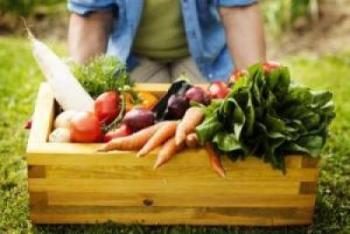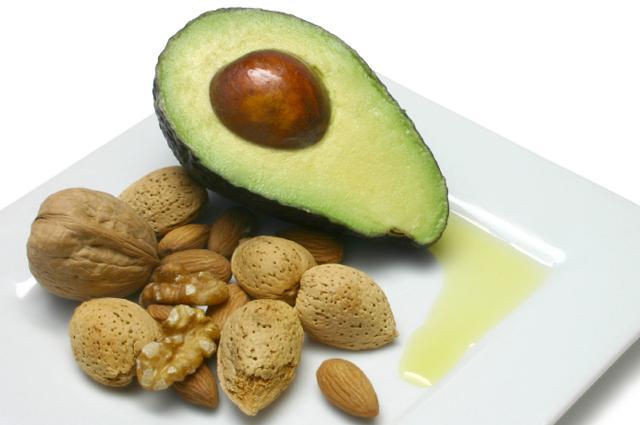
West Meet East
Holistic Therapy & Acupuncture Clinic
715 1/2 Adelaide Street N.
London, ON, N5Y 2L4
email:info@westmeeteastclinic.com


Tel:(519)-657-5106
Cancer Patient Nutrition Support
Proper Nutrition is Vital for Cancer Patients
Nutrition is a process in which food is taken in and absorbed by the body for growth and for repair. Proper nutrition is essential for body's functions. A healthy diet should include eating enough foods, that have the necessary nutrients the body needs, supplements and drinking plenty of water. Eating the right kinds of foods before, during and after cancer treatment can help the patient stay stronger and feel better. When the body does not get or cannot absorb the needed nutrients for health, it causes a condition called malnutrition.
Cancer and Cancer Treatment Affect Nutrition
For many patients, the effects of cancer and cancer treatments make them hard to eat and absorb nutrients well. Nutrition therapy is employed to help cancer patients get the needed nutrients to keep up their body weight and strength, keep body organs function well to fight infections. A customized Nutrition Program can help patients deal with the symptoms of the cancer and the side effects of treatments. Cancer treatments work better when the patient is well nourished. Patients who are well nourished will have a better prognosis and quality of life.

Common Side Effects of Cancer and Cancer Treatments:
- Pain
- Loss of Appetite
- Trouble Swallowing
- Nausea and Vomiting
- Diarrhea and/or Constipation
- Loss of Body Weight
- Depression and Anxiety
Treat Malnutrition and Weight Loss caused by Cancer and Cancer Treatment Early
Malnutrition can cause the cancer patient to be weak, tired and unable to fight infections or get through cancer treatment. Malnutrition may be made worse if the cancer spreads. Ingesting too little nutrients is a very common problem for cancer patients. It is important that cancer symptoms and side effects that affect absorption and cause weight loss are treated early. A customized Nutrition Therapy can help the patient stay at a healthy weight and a strong immunity to continue fighting cancer.

Nutrition Therapy can be used for the following:
- To help increasing appetite
- To help digesting foods and to improve absorbing nutrients
- To prevent nausea and vomiting
- To prevent diarrhea and/or constipation
- To help reducing the pain
- To help to increasing energy and physical strength
- To promote the immunity to lower the risk of infection
- To support a better and faster recovery
Common Immune Building Nutrients:
|
Nutrient |
Food source |
Body Functions Facilitates |
|
Vitamin A |
Fish liver oil, beef liver, apricots, carrots, spinach, green & yellow fruits and vegetables |
Body tissue reparation and resist infection, visual purple production (necessary for night vision) |
|
Beta Carotene |
Orange, yellow and dark green leafy vegetables including carrots, sweet potatoes, cantaloupe, apricots, spinach & kale |
A precursor of vitamin A, key for strong immunity and general health |
|
Vitamin-B Complex |
Brewer’s yeast, liver, whole grains |
Body energy production, key role in metabolism of food, maintain muscle tone |
|
Vitamin B2 (Riboflavin) |
Whole and enriched cereals and breads. organ meats, milk, eggs, nuts, brewer’s yeast |
Antibody and red blood cell formation, cell respiration, food metabolism |
|
Vitamin B6 (Pyridoxine) |
As for B2 plus wheat germ, prunes, brown rice, peas, bananas |
Antibody formation, hydrochloric acid production, protein and fat utilization, maintain sodium and potassium balance |
|
Vitamin B9 (Folic Acid) |
Leafy green vegetables, organ meats, milk, milk products, oyster, salmon, whole grains, brewer’s yeast, dates, spinach, tuna fish |
Appetite, body growth and reproduction, hydrochloric acid production, protein metabolism, red blood cell formation |
|
Vitamin B5 (Pantothenic Acid) |
Brew’s yeast, legumes, salmon, whole grains, wheat germ, organ meats, elderberries, orange juice, mushrooms (cocked) |
Antibody formation, energy conversion from foods, growth stimulation, vitamin utilization |
|
Vitamin C |
Citrus fruits, berries, broccoli, bell peppers, cantaloupe, papaya, strawberries |
Bone and teeth formation, collagen production, iodine conservation, promote healing, red blood cell formation, shock and infection resistance, prevent oxidation |
|
Vitamin E |
Dark green vegetables, egg yolk, liver, wheat germ, safflower oil, peanuts |
Aging retardation, anti-clotting factor, blood cholesterol reduction, capillary wall strengthening, fertility, male potency, anti-pollution, muscle and maintenance |
|
Selenium |
Garlic, legumes, asparagus, seafood, organ meats muscle meats, cereals and other grains, egg, dairy products |
Critical roles in reproduction, thyroid hormone metabolism, DNA synthesis, and protection from oxidative damage and infection |
|
Iron |
Liver, peas, egg, fish, organ meats, wheat germ, asparagus |
Hemoglobin production, stress and disease resistance |
|
Zinc |
Liver, oysters (seafood), soybeans, sunflower seeds, mushrooms |
Burn and wound healing, carbohydrate digestion, prostate gland function, reproductive organ growth and development, sex organ maturity, vitamin-B1, protein and phosphorus metabolism |
|
Magnesium |
Green leafy vegetables, bran, honey, nuts (peanuts), seafood, spinach, bone meal |
Acid/ alkaline balance, blood sugar metabolism, calcium and vitamin-C metabolism |
|
Manganese |
Bananas, bran, celery, pineapple, nuts, whole grains, egg yolk, green leafy vegetables, legumes |
Enzyme activation, reproduction and growth, sex hormone production, tissue respiration, vitamin-B1 metabolism, vitamin-E utilization |
|
Protein |
Lean meat, poultry, fish, eggs, milk, cheese, yogurt, legumes, grains, nuts, seeds (sunflower seeds), vegetables (broccoli) |
More than 10,000 different proteins found throughout the body—in muscle, bone, skin, hair, and virtually every body parts or tissues, enzymes production, hemoglobin production |
|
Phytochemicals: |
Citrus fruits, berries, legumes, whole grains, soy, purple grapes, cranberries, tea, tomato and tomato products, pink grapefruit, watermelon, dark green vegetables (such as kale, broccoli), kiwi, brussels sprout, spinach, flax seed, oatmeal, barley, rye |
Prevent or slow the oxidative damage to our body, act as "free radical scavengers", prevent and repair damage done by these free radicals. Enhance immune defense and lower the risk of cancer and infection |
Our other core services:
1. AcuGraph
2. Acupuncture
3. Cupping
4. Moxibustion
5. Weight Loss Solution
6. Wellness Care Program
7. Cancer Nutrition Support
Core Services
Acupuncture
Moxibustion
Weight Loss Solution
Wellness Care
Cancer Patient Support
Specialty Programs
Men's Health
Women's Health
Skin Health
Joint Health
Heart Health
Vision Care
Specialty Programs
Men's Health
Women's Health
Skin Health
Joint Health
Heart Health
Vision Care
Payments Accepted
in network with most major insurance companies
|
|
|
|
|
Hours of Operation
Monday 9:30 am - 6:30 pm
Tuesday 9:30 am - 6:30 pm
Wednesday 9:30 am - 6:30 pm
Thursday 9:30 am - 6:30 pm
Friday 9:30 am - 6:30 pm
Saturday 9:30 am - 12:30 pm
©2014 WestMeetEast . All Rights Reserved



